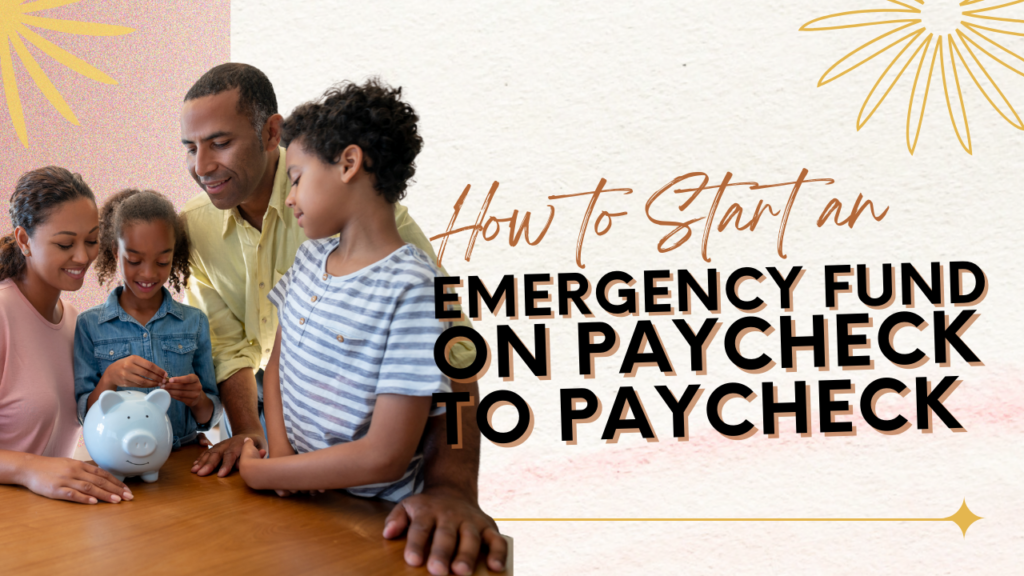As moms, we are always looking for ways to ensure financial stability and provide a happy future for our families. One important aspect of family finances is the mortgage on our homes. Many of us have heard about the benefits of paying off our mortgage early, but is it really the right choice for everyone?
In this article, we will explore the pros and cons of paying off your mortgage early and how it can impact your family’s finances.
What It Means to Pay Off Your Mortgage Early
Paying off your mortgage early means taking proactive steps to eliminate your mortgage debt sooner than the agreed-upon term. Instead of making the minimum monthly payment dictated by your loan agreement, you make extra mortgage payments or pay off the entire balance ahead of schedule. This can help you take a chunk off your principal balance from your mortgage lender. Aside from making an extra payment, you get the chance to curb the mortgage interest rate too.
This can be achieved through various methods, such as increasing your monthly mortgage payment, making bi-weekly payments, or making a lump sum payment. Most plans are free from prepayment penalties, so you can take this route if you do want to.
The Pros
1. Financial Freedom and Peace of Mind
There are several advantages to paying off your mortgage, and the one most people aim for? “Paying off your mortgage early could free up your cash for travel, retirement, or other long-term plans,” as Amanda C. Haury of Investopedia puts it. And who doesn’t want more financial freedom? Paying off your mortgage early can bring a sense of financial freedom and peace of mind. Imagine the relief of knowing that you own your home outright, without monthly mortgage payments hanging over your head. This can provide a solid foundation for your family’s financial future and reduce stress levels.
2. Interest Savings
One of the most significant advantages of paying off your mortgage early is the amount of money you can save on interest.
By making extra payments or paying off the entire mortgage balance ahead of schedule, you can potentially save thousands or even tens of thousands of dollars in interest payments over the life of the loan.
This money can be redirected towards other important aspects of your family’s finances, such as education, vacations, or retirement savings.
3. Increased Equity
Paying off your mortgage early allows you to build equity in your home at a faster rate. As you pay down your mortgage balance, the equity in your home increases. This can be beneficial if you ever decide to sell your home or use the equity for other financial needs, such as renovations or investments.
The Cons
So should you be paying it off early? Victoria Araj of Rocketmortgage says it might not be a good idea: “Paying down your mortgage early reduces the amount that you’ll pay over time, but finance experts don’t agree that you should always focus on paying your loan off as soon as possible.” Here are some other factors to consider:
1. Opportunity Cost
While paying off your mortgage early can save you money on interest payments, it also means tying up a significant amount of your financial resources in your home. When you save money, it could potentially be invested in other areas, such as stocks, bonds, or starting a business. By paying off your mortgage early, you may miss out on potential higher returns from these alternative investments.
2. Limited Liquidity
Paying off your mortgage early reduces your liquidity, as your money becomes tied up in your home. This can make it more challenging to access funds for emergencies or unexpected expenses.
It’s important to consider whether you have sufficient savings and emergency funds before committing to paying off your mortgage early.
3. Impact on Tax Benefits
Depending on your country’s tax laws, paying off your mortgage early could result in the loss of certain tax benefits. Mortgage interest payments are often tax-deductible, and by paying off your mortgage, you may no longer be eligible for a mortgage interest tax deduction.
It’s crucial to consult with a financial advisor or tax professional to understand the potential impact on your specific situation.
Is It Worth It to Pay Your Mortgage Early?
The decision to pay off your mortgage early is a personal one and depends on your unique financial circumstances and goals.
While there are benefits to paying off your mortgage early, it’s important to consider the following factors before making a decision:
Financial Stability and Peace of Mind
Paying off your mortgage early can provide a sense of financial stability and peace of mind. By eliminating a significant monthly expense, you free up your budget for other priorities, such as saving for retirement, funding your children’s education, or pursuing your passions.
Knowing that you own your home outright can bring a sense of security and reduce financial stress.
Interest Savings
One of the primary advantages of paying off your mortgage early is the potential for substantial interest savings. By reducing the overall interest paid over the life of the loan, you can save thousands or even tens of thousands of dollars. This money can be redirected towards building wealth, creating opportunities for your family, or achieving your financial goals.
Increased Equity and Financial Flexibility
Paying off your mortgage early allows you to build equity in your home at an accelerated pace. As you reduce your loan balance, the equity you have in your home increases.
This can provide you with financial flexibility, allowing you to tap into your home equity for future needs, such as home renovations, investments, or even a down payment on a second property.
Tips to Pay Off Your Mortgage Early
If you decide that paying off your mortgage early aligns with your financial goals, here are some practical tips to help you on your journey:
1. Create a Budget and Track Your Expenses
Start by creating a comprehensive budget that outlines your income, expenses, and savings goals. Tracking your expenses will help you identify areas where you can cut back and redirect funds toward your mortgage payments.
2. Increase Your Monthly Payments
Consider increasing your monthly mortgage payments by a fixed amount or a percentage of your income. Even a small increase can make a significant difference over time.
3. Make Biweekly Mortgage Payments
Switching to biweekly payments instead of monthly payments can help you make an extra mortgage payment each year, accelerating your mortgage payoff timeline.
4. Use Windfalls or Bonuses
If you receive windfalls like tax refunds or work bonuses, consider using a portion of that money to make lump sum payments towards your mortgage principal. This will help reduce your overall balance and save on interest.
5. Refinance to a Shorter Term
If your financial situation allows, consider refinancing your mortgage to a shorter term, such as a 15-year loan. While this may increase your monthly payments, it can significantly reduce the total interest paid over the life of the loan.
6. Prioritize Debt Repayment
If you have other high-interest debt, such as credit cards or personal loans, consider prioritizing their repayment before focusing on your mortgage. By tackling these debts first, you can free up more funds to put towards your mortgage payments.
Remember, paying off your mortgage early requires commitment and discipline. Celebrate small victories along the way and stay motivated by visualizing the financial freedom and abundance that await you and your happy family.
To Wrap Up
Now that you know everything, what’s the best decision? It’s ultimately up to you. According to Miranda Marquit, “Ultimately, the decision comes down to personal preference and whether the benefits outweigh the costs. Consider any prepayment penalty and the potential tax consequences. Also, conduct an inventory of your finances to determine if it’s more sensible to use the funds elsewhere, like to eliminate high-interest debt.”
Paying off your mortgage early can have both pros and cons for your family’s finances. It offers financial freedom, interest savings, and increased equity, but it also comes with opportunity costs, reduced liquidity, and potential loss of tax benefits.
Ultimately, the decision to pay off your mortgage early should be based on your personal financial goals, risk tolerance, and overall financial situation. Consider speaking with a financial advisor who can provide tailored advice to help you make the best decision for your family’s future.
Remember, every family’s circumstances are unique, and what works for one may not necessarily work for another.










